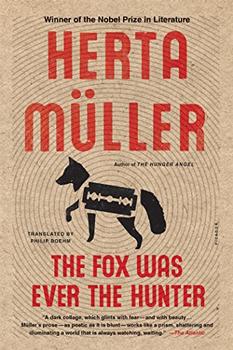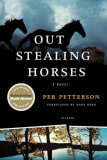Summary | Excerpt | Reviews | Beyond the book | Read-Alikes | Genres & Themes | Author Bio

A Novella and Stories
by Ismail KadareIn this spellbinding novel, written in Albania and smuggled into France a few pages at a time in the 1980s, Kadare denounces with rare force the machinery of the dictatorial regime, drawing us back to the ancient roots of Western civilization and tyranny.
From the winner of the first Man Booker International Prize comes a crushing story of love taken away without warning and shattered by the icy wheels of the state.
Albania: the waning years of Communism. The narrator, working for the state-controlled media agency, has taken as his lover Suzana, the daughter of a high-ranking government official, rumored to be soon appointed the dictator’s successor. Suzana’s father has forced her to end the affair, which could damage, if not ruin, his career. Still, the young man has received an invitation to attend the May First Parade on the Party platform: an enviable privilege. While the usual ceremony of the regime’s self-glorification unfolds, our narrator suddenly sees—between the flags, the propaganda streamers, and portraits of the country’s leaders—the ghostly image of Agamemnon, the terrifying general of the ancient Greeks. A hallucination or just his imagination? Instinctively he senses that his “sin” of loving will result in his own downfall, as Agamemnon’s was caused by sacrificing his daughter, Iphigenia.
In this spellbinding novel, written in Albania and smuggled into France a few pages at a time in the 1980s, Kadare denounces with rare force the machinery of the dictatorial regime, drawing us back to the ancient roots of Western civilization and tyranny.
Also included are "The Blinding Order," a parable of the Ottoman Empire about the uses of terror in authoritarian regimes, and "The Great Wall," a chilling duet between a Chinese official and a soldier in the invading army of the horrifying Tamerlane.
Most of us are used to reading books that combine the bitter with the sweet, but there is little if anything sweet to grasp on to in these three stories - there is no spoonful of honey to help the medicine go down, but just like The Swallows of Kabul, these stories are written with a humanity that will touch your soul, if you give them a chance...continued
Full Review
 (848 words)
(848 words)
(Reviewed by BookBrowse Review Team).
Today, Albania is a country slightly smaller than the USA State of Maryland
with a population of about 3.5 million. It is bordered by Montenegro,
Serbia, Macedonia, Greece and the Adriatic Sea. Albanian is spoken by about 6
million people living in Albania, Kosovo and the Republic of Macedonia.
It is believed by most that Albanians are direct descendants of an Illyrian
tribe named "Albanoi". The Illyrians were Indo-European tribesman who
populated the Balkan Peninsula around 1000 BC (Bronze Age/early Iron Age).
The area fell under Roman control in 165 BC, and Christianity arrived in the
first century AD (Paul preached in Illyricum). Following the fall of the
Roman Empire the area was invaded by ...

If you liked Agamemnon's Daughter, try these:

by Herta Muller
Published 2017
An early masterpiece from the winner of the Nobel Prize hailed as the laureate of life under totalitarianism.

by Per Petterson
Published 2008
We were going out stealing horses. That was what he said, standing at the door to the cabin where I was spending the summer with my father. I was fifteen. It was 1948 and one of the first days of July.